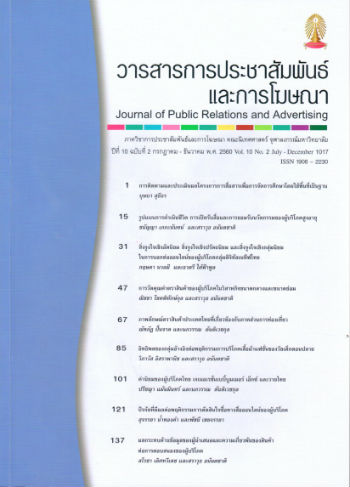สิ่งจูงใจเชิงอัตนิยม สิ่งจูงใจเชิงปรัตถนิยม และสิ่งจูงใจเชิงกลุ่มนิยม ในการบอกต่อออนไลน์ของผู้บริโภคกลุ่มดิจิทัลเนทีฟไทย
Main Article Content
Abstract
The purpose of this study is to identify behavior, patterns, egoistic motives, altruistic motives, and collective motives of Thai digital-native consumers to generate electronic word-of-mouth (eWOM). The research employs focus group discussion with 24 participants, aged 18-25 years old and living in Bangkok. The study found that most of the Thai digital-native consumers own and used smartphone to generate eWOM. Facebook is identified to be their must-have and first platform to generate eWOM. Most frequently-generated patterns of eWOM are photo/video sharing, product/service review and status update about consumption experiences, respectively. Their egoistic motives to generate eWOM are self-enhancement, followed by venting negative feelings, and brand preference. Altruistic motives are helping others, concern for others, and helping This company. Collective motives are promoting social well-being, warnings of social
dangers, and consumer empowerment.


